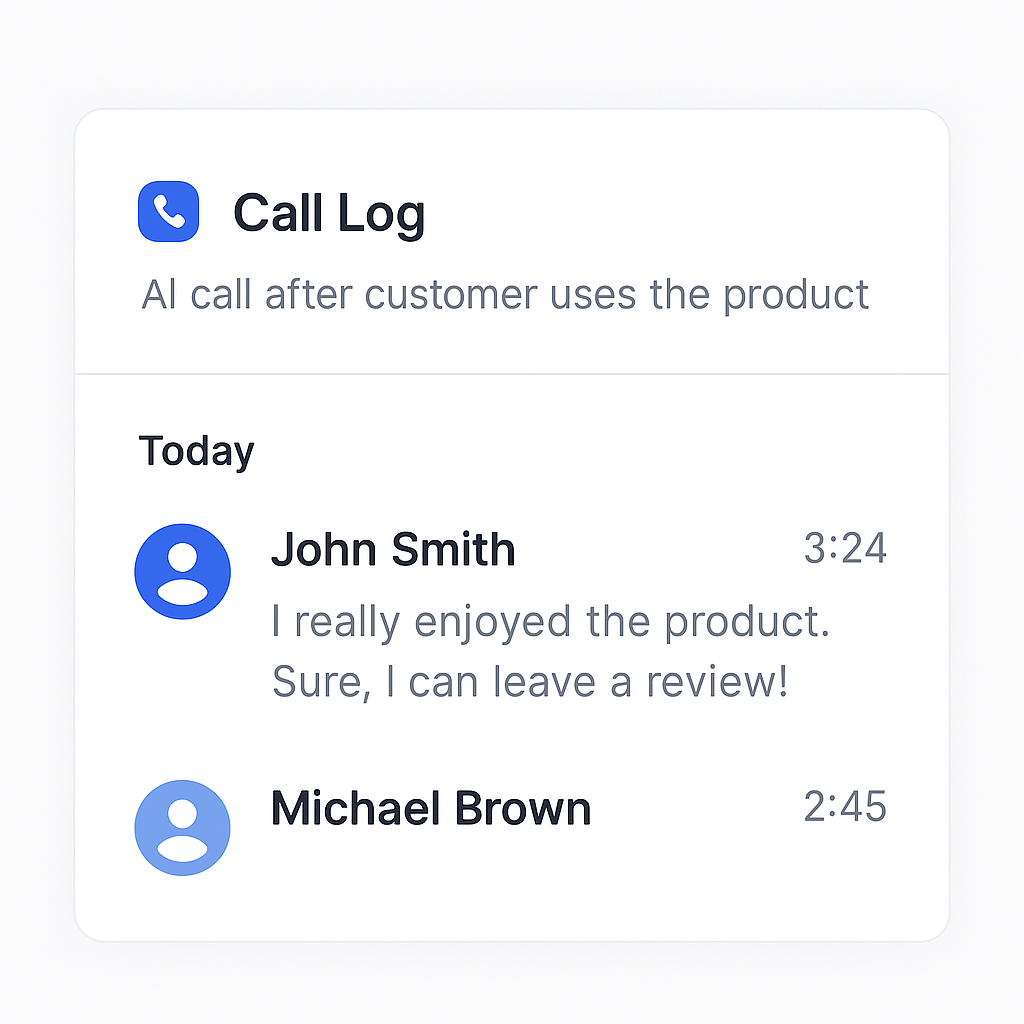Utilize reviews to boost your SEO
Learn more about how reviews management helps search engine optimization.

 Trusted by users
Trusted by usersReviews
What our customers say about us
We value our customers and their honest feedback.
How to Boost SEO With Reviews: The Ultimate Guide
Reviews do more than build trust — they boost your rankings.
Whether you're trying to improve your local visibility, outrank competitors, or increase organic click-through rates, user-generated reviews are a powerful (and underutilized) SEO asset. In this guide, we’ll show you how to turn your customer feedback into search engine fuel — and how platforms like AitoScore can automate and amplify that process.
Why Reviews Are SEO Gold
Search engines love fresh, relevant, user-generated content. Reviews offer:
- Unique keyword-rich content (in the customer’s own words)
- Constantly updated content (Google rewards freshness)
- Trust signals (which influence click-through rates)
- Structured data opportunities (rich snippets = better visibility)
1. Keyword-Rich User Content
Every review is free SEO copy.
Customers naturally include long-tail keywords, brand names, product use cases, and more — all without stuffing. Over time, reviews help your pages rank for:
- Product-specific search terms
- Comparison and intent-driven queries (e.g. “best AI review software for Shopify”)
- Local variations (e.g. “review management Helsinki”)
Example: “We’ve used AitoScore’s AI caller to triple our review count in just 2 weeks” — includes product name + benefits.
2. Improve Click-Through Rate With Rich Snippets
When reviews are embedded using structured data (JSON-LD schema), Google can display star ratings in your search results. This:
- Increases trust at first glance
- Improves CTR by 20–30% on average
- Sets you apart visually from competitors
AitoScore widgets automatically include schema markup to make your reviews indexable and displayable as rich results.
3. Rank Higher With Fresh Content Signals
Search engines value pages that are updated often. Static product or service pages rarely change — but when you add new reviews:
- You get regular content updates
- Search engines crawl your page more frequently
- You may benefit from QDF (Query Deserves Freshness) signals
This is especially useful for local or seasonal businesses.
4. Rank for Local SEO
Google's local algorithm favors businesses with:
- High review volume
- Recent reviews
- Strong average rating
This affects:
- Local pack rankings
- Visibility on Google Maps
- “Near me” queries (e.g. “best review platform near me”)
AitoScore’s review collector and EasyCaller tool help you consistently collect fresh, location-tied reviews for local SEO wins.
5. Generate More Indexed Pages (Safely)
If you have multiple product or location pages, reviews help make each one unique in the eyes of Google. User content changes the copy naturally, helping you:
- Avoid duplicate content
- Increase time on page
- Improve dwell metrics
Tip: Use paginated review sections and avoid hiding all reviews behind JavaScript — AitoScore’s widget is indexable and schema-compatible.
6. Use Reviews to Fuel Long-Form SEO Content
Analyze review sentiment and themes to guide:
- Blog content (e.g. “Top 5 reasons users love our Pro plan”)
- Landing page copy (highlighting pain points and solutions)
- Comparison pages (“AitoScore vs [Competitor] — Based on Real Reviews”)
Bonus: Use AitoScore AI to auto-generate summaries from your best reviews.
7. Boost Internal Linking With Review Pages
If you create dedicated review pages for each product, service, or location:
- You create more crawlable, SEO-optimized pages
- You can interlink between them for topic relevance
- You capture search terms like “[product name] reviews”
AitoScore supports company-level slug URLs (
/reviews/[slug]) and optimized markup for SEO crawling.
8. Leverage Social Proof to Increase Conversion Rate (Indirect SEO Impact)
Even if reviews don’t always rank directly, they improve:
- Conversion rate from SEO traffic
- Time on page (a signal for engagement)
- Lower bounce rate due to higher perceived trust
All of these factors contribute to stronger organic rankings over time.
9. Implement Review Schema Properly
Make sure your reviews are using the correct Review schema or AggregateRating schema. AitoScore’s widget output includes:
ratingValuereviewCountbestRating/worstRatingauthor,datePublished, etc.
Google’s Rich Results Test can verify this for you.
10. Encourage Reviews on 3rd Party Sites (and Pull Them In)
Reviews on Google, Facebook, and Trustpilot also boost your visibility on those platforms and indirectly support SEO.
With AitoScore, you can:
- Monitor your ratings across platforms
- Display them via widget on your site
- Pull in reviews via our integrations (coming soon)
This boosts trust and helps populate your site with more indexable content.
Best Practices for SEO-Optimized Review Strategy
- ✅ Collect reviews continuously (freshness matters)
- ✅ Use structured data markup (automatic with AitoScore widgets)
- ✅ Place review content high on the page (not hidden)
- ✅ Show aggregated review summaries (Trust Score, ratings)
- ✅ Create dedicated review pages (with crawlable content)
- ✅ Encourage location-specific reviews (boost local SEO)
Conclusion: Reviews = SEO Fuel
Search engines reward businesses that customers trust — and reviews are the most scalable way to signal that trust.
With AitoScore, you can:
- Collect and structure reviews automatically
- Display them for both human users and search engines
- Convert SEO traffic more effectively
Need help boosting SEO with reviews?
Let AitoScore handle the review engine — and turn feedback into rankings.